Search
Search Results
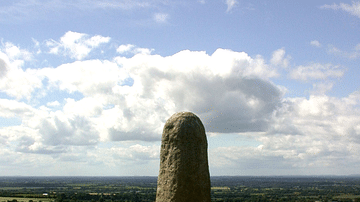
Image
Stone of Destiny, Hill of Tara
The Neolithic Lia Fail (Stone of Destiny), Hill of Tara, County Meath, Ireland, by which the ancient kings were inaugurated.
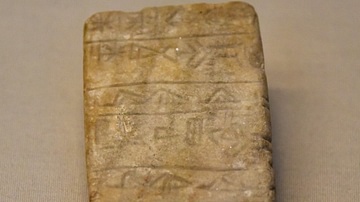
Image
Sumerian Stone Foundation Inscription
It was a Sumerian tradition to deposit or bury objects bearing inscriptions within temples and important public buildings. These recorded the names of the persons who were responsible for the building and also ensured divine protection. The...
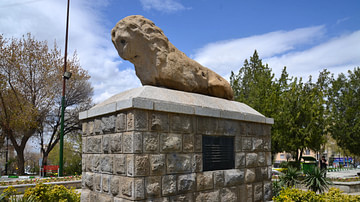
Image
Stone Lion of Hamadan, Iran
The Stone Lion of Hamadan, which once had a twin, was part of the old gate of the city of Ecbatana in Persia (modern-day Iran). According to some accounts, the lions were built upon the order of Alexander the Great (r. 336-323 BCE) to commemorate...
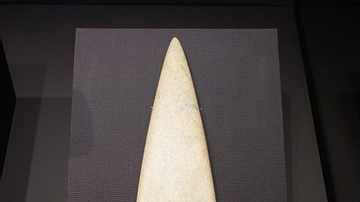
Image
Stone Age Jade Axe
Jade, 5000-3600 BCE. Biebrich, Germany. This axe is made of European jade mined in prehistoric quarries in the Italian Alps. It appears to be an object of beauty rather than function. It would have taken several days to polish this jade...
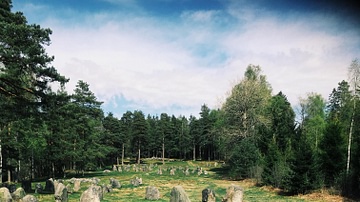
Image
Stone Circles at The Hunnfelt
View of the nine stone circles at The Hunnfelt in Østfold, Norway. Dating from c. 500 BCE to c. 900 CE.
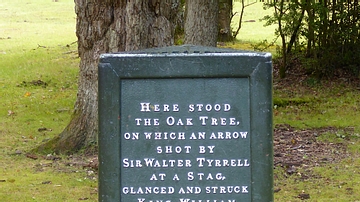
Image
Rufus Stone, New Forest
The Rufus stone (now a metal plaque) which marks the spot in the New Forest, England where William II of England (r. 1087-1100 CE) died in a hunting accident.
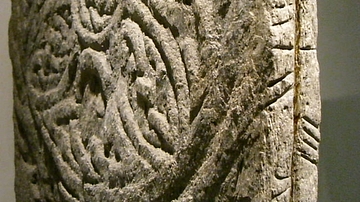
Image
Ogham Stone
Ogham writing on standing stone, seen on the right-hand side of the picture.
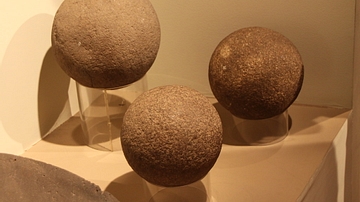
Image
Stone Spheres
Stone Spheres, Jade Museum, San Jose, Costa Rica.
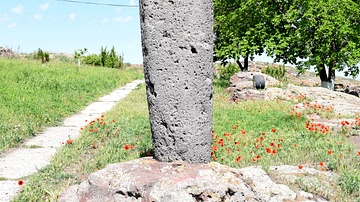
Image
Vishap Stone at Metsamor, Armenia
This Vishap stone (or "Vishapakar" in Armenian) dates from prehistoric times and sits just in front of the Metsamor Historical-Archaeological Museum-Reserve in Taronik, Armenia. Vishap stones or "serpent stones" are menhirs found across Armenia...
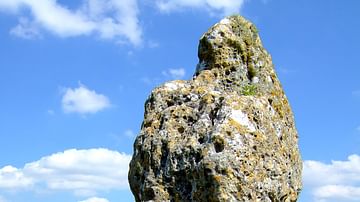
Image
King Stone, Rollright Stones
Part of the Rollright Stones complex, the King Stone is a solitary weathered monolith dated to 2nd millennium BCE.